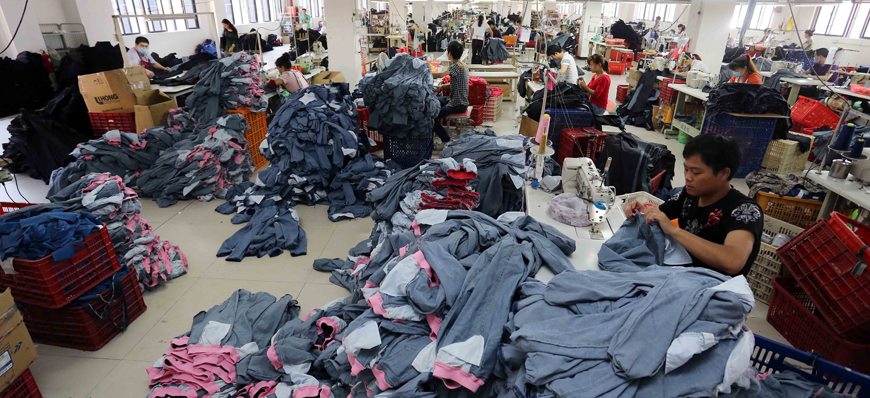BEIJING – The outlook for the global economy became bleaker on Wednesday as signs of a deeper downturn in China emerged, despite massive policy stimulus, coupled with weak growth at best in Europe.
China's vast factory sector shrank at its fastest rate in 6-1/2 years in September, a private survey showed, sending investors worried about sagging global growth scurrying out of risky assets.
Reacting to the data, Asian stocks posted their biggest single-day fall in a month on Wednesday.
Similar surveys are likely to show the US economy lost some steam in September even with the Federal Reserve holding fire on interest rates.
"There is substantial concern at present that global demand weakness is dampening the economy in the industrial countries," said Jorg Kramer, chief economist at Commerzbank.
The preliminary Caixin/Markit China Manufacturing Purchasing Managers Index fell to 47 in September, the worst since March 2009, missing expectations for 47.5 and slipping from August's 47.3. Levels below 50 signify a contraction.
It was the seventh straight month of contraction for the manufacturing sector and the survey showed business conditions deteriorating almost across the board, as firms slashed output, prices and jobs at a faster pace as orders fell.
The data underline the malaise in the world's second largest economy and just how difficult it will be for policy makers to steer the economy out of the biggest downturn in decades.
Last month, Beijing devalued the currency to support exports and boost growth, currently at 7 per cent.
But that move was seen by investors as official endorsement of a slowing economy. A global financial market rout, notably in Chinese stocks, followed and forced the central bank to cut interest rates again, the fifth time since November.
China is a major importer of raw materials, especially from Australia, South Africa and Canada, and exporter of finished goods.
A slowdown there will ring out across the world, denting demand and souring business sentiment. Last week, it figured high on a list of reasons the Fed had for not raising interest rates in the United States for the first time in almost a decade.
Sentiment at Asia's biggest companies tumbled at a record pace in the third quarter on worries about China and the risks it poses to global growth, a Thomson Reuters/INSEAD survey showed.
There are signs dwindling demand from Asia, led by China, is starting to hurt businesses in the eurozone, according to PMI survey compilers Markit.
Private business growth in the currency bloc slowed this month as Asian demand weakened, leading to fewer new jobs and forcing factories to reduce output.
The Composite Flash PMI for the bloc came in at 53.9 in September against predictions of a dip to 54.1, down from 54.3 last month. Markit said the PMIs point to third quarter growth of 0.4 per cent.
"It is hard to see euro zone growth really kicking on," said Howard Archer at IHS Global Insight.
"There is the very real risk that slowing growth in emerging markets like China not only hits eurozone exports but also has a negative impact on business sentiment and leads to a scaling back of investment and employment plans."
The big upside from the data, however, was that the dominant service industry was able to charge higher prices for the first time in four years.
That will be welcome news for the European Central Bank that is struggling to get inflation close to its target of just below 2 per cent even after six months of stimulus. Inflation was a meagre 0.1 per cent in August.
Speculation the ECB will expand its 60 billion euros a month quantitative easing programme has mounted recently and several policy makers have indicated the central bank stood ready to act if inflation dipped or failed to rise as swiftly as expected.
"Growth is too slow to generate inflation and given the likelihood of a slowdown to come, the ECB should still up the pace of its quantitative easing programme," said Jennifer McKeown at Capital Economics.
Testimony on Wednesday afternoon from ECB President Mario Draghi could give an indication of how close the bank is to acting.
Business activity in Germany, the eurozone's number one economy slowed slightly in September while activity rebounded in France as manufacturing output swung back to growth after two consecutive months of decline.
